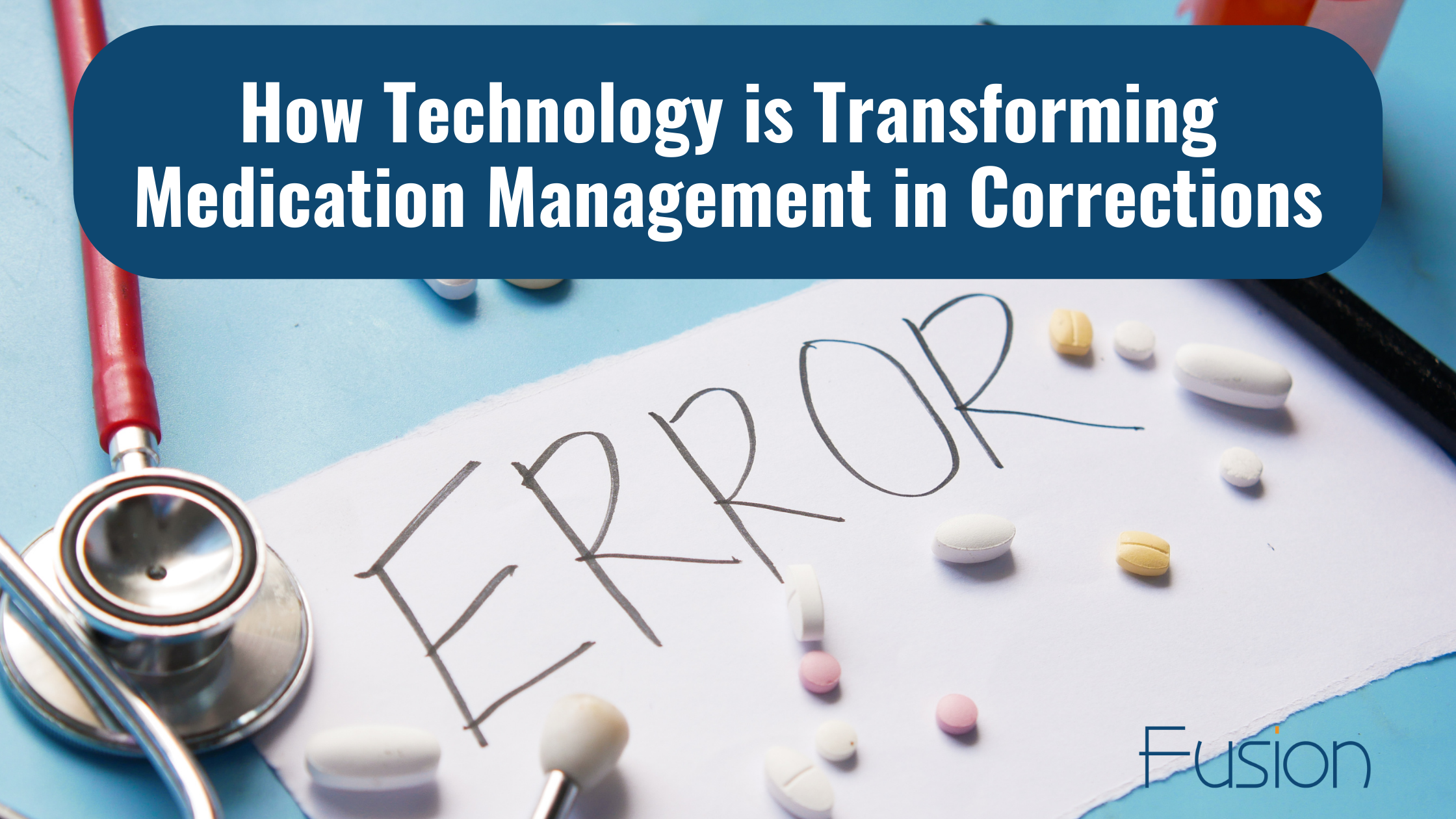An inmate is suffering a preventable medical emergency due to a medication error. In the high-stakes environment of correctional healthcare and medication management, where lives are on the line, this isn’t just an error. It’s a crisis.
Medication management and medication errors are serious concerns in any healthcare setting, but in correctional facilities, the unique challenges can magnify the risks. Overcrowding, limited resources, and complex patient populations can often make medication dispensing a daily juggling act for correctional healthcare providers. The traditional paper-based systems used in many facilities are prone to errors, from illegible handwriting to transcription mistakes. The consequences can be devastating, leading to adverse events, increased healthcare costs, and even legal liabilities.
But there’s a solution that’s already transforming the landscape of correctional healthcare: technology. Electronic health records (EHRs), pharmacy management software, and electronic medication administration records (eMARs) aren’t just buzzwords; they’re powerful tools that empower correctional healthcare providers to deliver safer treatment, more efficient care, and optimized medication management protocols.
In this blog post, we’ll delve into the specific medication error risks that correctional facilities face. We’ll explore how technology like the solutions offered by Fusion can mitigate these risks, streamline medication administration workflows, and ultimately protect the health and well-being of inmates. We’ll share real-world examples of how technology is already making a difference in correctional healthcare settings across the country.
Whether you’re a correctional healthcare administrator, a nurse, a pharmacist, or simply someone concerned about inmate health, this post will equip you with the knowledge and insights to advocate for a safer, more efficient future for medication management in corrections.
The High Stakes of Medication Errors in Correctional Facilities
Correctional facilities face a unique set of challenges that increase the risk of medication errors. Inmates often have complex medical histories, multiple medications, and a higher prevalence of chronic diseases like diabetes, hypertension, and mental health disorders. Additionally, the constant flow of inmates in and out of facilities can lead to fragmented care and communication breakdowns, further complicating medication regimens.
Consider these sobering statistics:
- Costs: The World Health Organization estimates the globally cost-associated medication error rate to be approximately $42 billion annually.
- Underserved populations and inadequate care: A JAMA study concludes that, based on researchers’ findings, that there may be “underuse of pharmacological treatment in correctional facilities” compared to nonincarcerated individuals. The study notes that this could be indicative of a broader, more critical public health issue.
- Adverse drug events: Medication errors are a leading cause of adverse drug events in correctional facilities, resulting in hospitalization, prolonged illness, and even death.
The human and financial costs of these errors are immense. Not only do they jeopardize the health and well-being of inmates, but they also strain healthcare resources, increase legal liabilities, and erode public trust in the correctional system. Effective medication error prevention is vital.
Fusion’s Technological Lifeline for Enhanced Medication Management
Fusion’s suite of correctional healthcare solutions, including EHRs, pharmacy management software, and eMARs, are designed to address the unique challenges of medication management in correctional facilities.
Here’s how Fusion’s technology is transforming the medication management landscape.
- Electronic health records (EHRs): By digitizing inmate health records, FusionEHR eliminates illegible handwriting, reduces transcription errors, and provides a comprehensive view of each inmate’s medical history, medications, and allergies. This enables healthcare providers to make informed decisions and avoid potentially harmful drug interactions.
- Pharmacy management software: Fusion’s pharmacy management software suites—CIPS and ProPharm—streamlines the entire medication ordering and dispensing process. It automates inventory management, tracks medication usage, and provides real-time alerts for potential errors or interactions. This ensures that inmates receive the right medication at the right dose, every time.
- eMAR: Fusion’s eMAR replaces cumbersome paper-based medication administration records with a digital system that ensures accurate medication administration. Barcoding technology verifies patient identity, medication, and dosage, minimizing the risk of human error. Additionally, the eMAR provides valuable data insights for continuous quality improvement.
By investing in these solutions, correctional facilities are not only improving patient safety but also demonstrating their commitment to providing quality care to a vulnerable population.
The Future of Safer Medication Management in Corrections
As technology continues to evolve, the future of medication management in corrections looks brighter than ever. By embracing innovation and partnering with companies like Fusion, correctional facilities can ensure that inmate health is no longer a gamble, but a priority.
If you’re ready to take the next step in transforming medication management at your correctional facility, we invite you to contact Fusion today. Let us show you how our technology can help you build a safer, more efficient, and more compassionate healthcare system for your inmates.

